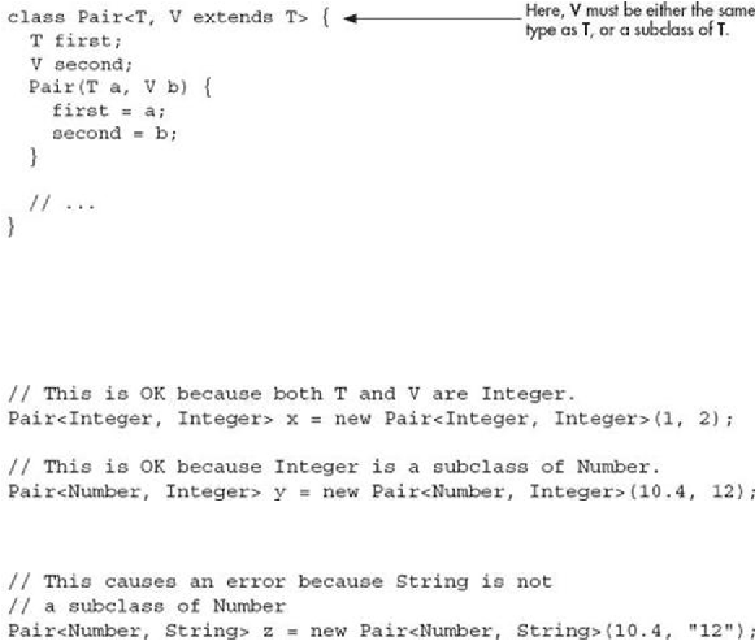Java Reference
In-Depth Information
Bounded types are especially useful when you need to ensure that one type parameter
is compatible with another. For example, consider the following class called
Pair
, which
stores two objects that must be compatible with each other:
Notice that
Pair
uses two type parameters,
T
and
V
, and that
V
extends
T
. This means
that
V
will either be the same as
T
or a subclass of
T
. This ensures that the two arguments
to
Pair
's constructor will be objects of the same type or of related types. For example, the
following constructions are valid:
However, the following is invalid:
In this case,
String
is not a subclass of
Number
, which violates the bound specified by
Pair
.
Using Wildcard Arguments
As useful as type safety is, sometimes it can get in the way of perfectly acceptable con-
structs. For example, given the
NumericFns
class shown at the end of the preceding sec-
tion, assume that you want to add a method called
absEqual( )
that returns true if two
NumericFns
objects contain numbers whose absolute values are the same. Furthermore,

